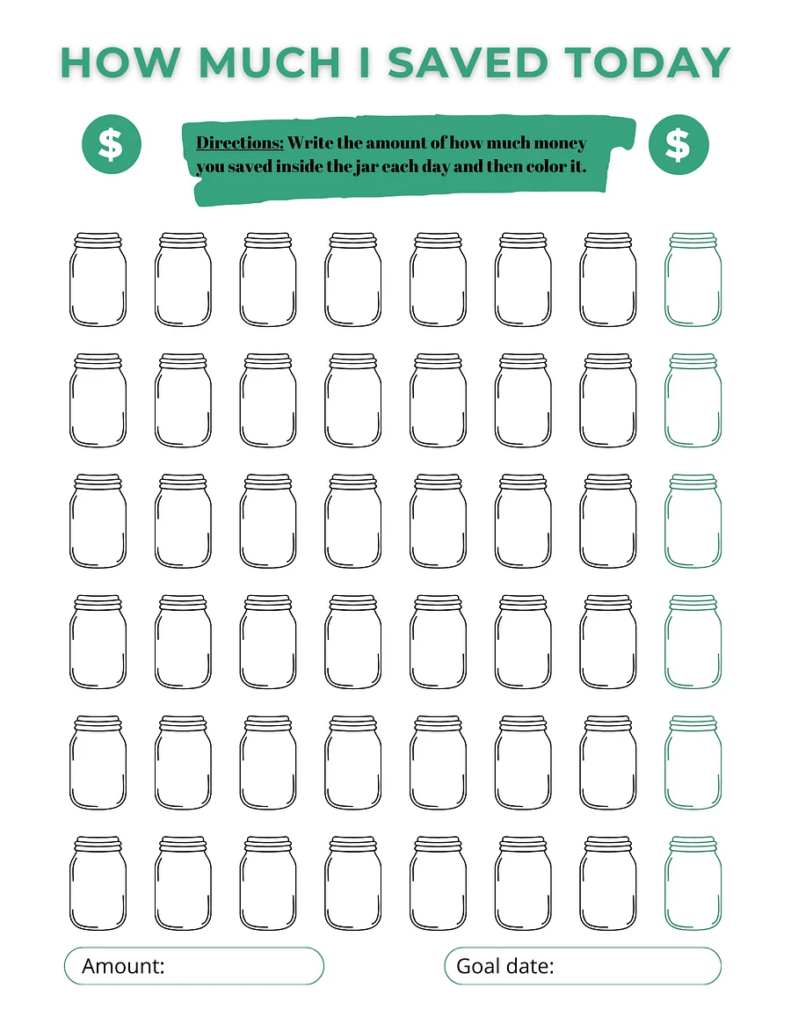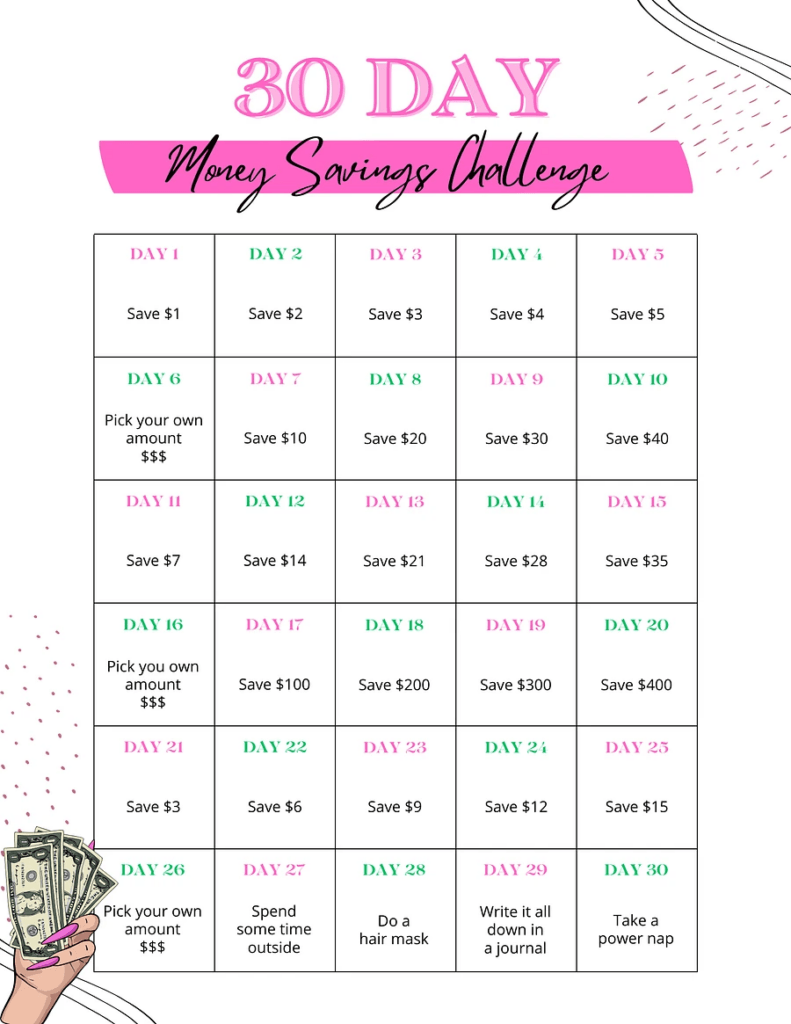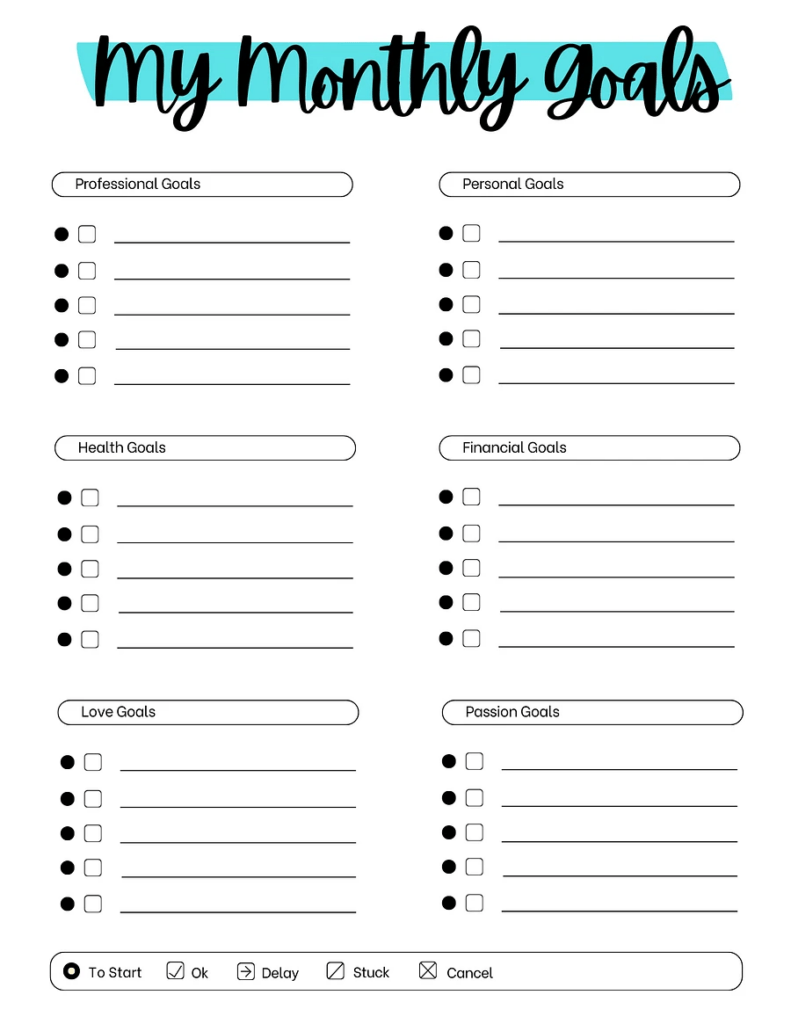Money stress is a silent epidemic, an invisible burden carried by millions. Whether it stems from mounting debt, unexpected expenses, or simply making ends meet, financial anxiety can be overwhelming. But while it’s a universal struggle, it’s not insurmountable. Taking proactive steps to manage money stress can transform fear into confidence, opening doors to financial peace.
Understanding the Root Causes of Financial Stress
Unexpected Emergencies: When Life Throws a Curveball
Life has a way of surprising us—car repairs, medical bills, or sudden job loss can derail even the most prepared budgets. These moments often feel like crises, amplifying the stress of financial uncertainty.
Debt Accumulation: The Chains of Borrowing
Debt can feel like an anchor, pulling you deeper with each passing month. From student loans to credit cards, the weight of repayment often compounds anxiety, leaving you feeling trapped.
Living Paycheck to Paycheck: A Precarious Existence
When every dollar is allocated before it even arrives, the smallest disruption can feel catastrophic. This cycle perpetuates stress, making it nearly impossible to get ahead.
Insufficient Savings: The Danger of Financial Vulnerability
Without a safety net, even minor setbacks feel catastrophic. The absence of savings magnifies the fear of “what if,” creating a constant undercurrent of tension.
Economic Uncertainty: External Forces at Play
Global recessions, inflation, and job market instability exacerbate personal financial struggles. These external pressures often feel beyond control, intensifying the stress they bring.
Social Pressures and Financial Comparison
Seeing others post about vacations, luxury purchases, or seemingly perfect lives can spark feelings of inadequacy. Social comparison feeds financial stress, especially in the age of social media.
Recognizing the Symptoms of Financial Stress
Emotional Symptoms: Anxiety, Guilt, and Irritability
Financial stress often manifests as persistent worry, guilt over spending, or irritability toward loved ones. These emotions can spiral, affecting overall well-being.
Physical Symptoms: Headaches, Fatigue, and Tension
Chronic stress often takes a physical toll, leading to headaches, muscle tension, and even fatigue. These symptoms are your body’s way of signaling distress.
Behavioral Changes: Avoidance and Impulsive Spending
Avoiding bills, procrastinating on financial decisions, or resorting to impulsive shopping for a fleeting dopamine boost are common behavioral patterns linked to financial stress.
Impact on Relationships and Social Connections
Money problems often create conflict in relationships, driving wedges between partners, friends, and family. Financial secrecy and disagreements compound the issue.
The Psychological Impact of Financial Stress
Decision Paralysis: The Fear of Making the Wrong Choice
Stress can cloud judgment, making even simple decisions feel monumental. This paralysis often exacerbates financial struggles, creating a vicious cycle.
Chronic Overthinking: A Cycle of Worry
Obsessing over worst-case scenarios can drain your energy, leaving you emotionally depleted. Breaking this cycle is essential for mental clarity.
Self-Worth and Money: Breaking the Link
Many people tie their self-esteem to their financial status, which can lead to feelings of inadequacy during tough times. Untangling this association is vital for emotional health.
How Financial Stress Affects Productivity
Work performance often suffers under the weight of money worries, leading to missed opportunities and diminished career growth.
Immediate Steps to Alleviate Financial Stress
Breathe: Quick Stress-Relief Techniques
Deep breathing exercises can calm your nervous system, providing instant relief from overwhelming emotions.
Acknowledge Your Stress Without Judgment
Recognizing that financial anxiety is a natural response can help you approach it with compassion rather than shame.
Write it Down: Journaling Your Financial Concerns
Putting your thoughts on paper can clarify your worries and reveal actionable steps to address them.
Talk to Someone You Trust for Emotional Support
Opening up about your struggles can lighten the emotional load and offer fresh perspectives.
Developing a Financial Game Plan
Taking Inventory of Your Finances
List all your assets, liabilities, income, and expenses. This clarity is the first step toward regaining control.
Prioritizing Your Financial Responsibilities
Focus on necessities like housing, utilities, and food before tackling discretionary expenses.
Setting Short-Term and Long-Term Goals
Define clear, actionable objectives to guide your financial journey. Small wins build momentum.
Creating a Flexible Budget that Works for You
A budget isn’t a straitjacket—it’s a tool. Build one that accommodates both structure and adaptability.
Tracking Spending to Identify Problem Areas
Understanding where your money goes can highlight habits that need adjustment.
Building a Financial Safety Net
The Importance of an Emergency Fund
An emergency fund acts as a financial cushion, providing peace of mind during unexpected events.
How to Start Saving with Minimal Income
Even small, consistent contributions add up over time. Start where you can and increase as you’re able.
Finding Creative Ways to Increase Savings
Cutting unused subscriptions, negotiating bills, or selling unused items can free up funds.
Automating Savings for Long-Term Success
Set up automatic transfers to make saving effortless and consistent.
Tackling Debt Strategically
Understanding Different Types of Debt
Not all debt is equal. Distinguish between high-interest and low-interest obligations to prioritize repayment.
Choosing Between the Snowball and Avalanche Methods
Paying off small debts first (snowball) builds momentum, while targeting high-interest debts (avalanche) saves money.
Consolidating Debt: Pros and Cons
Debt consolidation simplifies payments but requires careful planning to avoid new pitfalls.
Negotiating with Creditors for Better Terms
Many lenders are open to renegotiating terms if you reach out proactively.
Knowing When to Seek Professional Debt Counseling
Sometimes, expert guidance is necessary to develop a realistic repayment plan.
Boosting Your Financial Literacy
Essential Financial Concepts Everyone Should Know
Understanding the basics of budgeting, interest rates, credit scores, and investments lays the groundwork for smarter financial decisions. Educate yourself on these fundamentals to feel more empowered when managing money.
Free Resources to Improve Your Financial Knowledge
Take advantage of free online courses, podcasts, and blogs dedicated to personal finance. Libraries often provide access to books and workshops that can deepen your understanding.
Learning from Financial Mistakes
Every setback is an opportunity to grow. Reflect on past financial missteps and use them as lessons to avoid repeating the same patterns.
The Power of Community Financial Education
Local community centers and nonprofits often host financial literacy workshops. Engaging with others on the same journey can provide support and fresh perspectives.
Cultivating Healthy Financial Habits
Consistent Budget Reviews
Regularly assess your budget to ensure it reflects your current financial situation. Adjust as necessary to accommodate changes in income or expenses.
Avoiding Impulse Purchases
Implement a “cooling-off period” before making non-essential purchases. Giving yourself 24 hours to consider can prevent regrettable decisions.
Learning to Say No to Unnecessary Expenses
Practice setting boundaries with friends, family, and yourself. It’s okay to decline outings or purchases that don’t align with your financial goals.
Adopting a “Pay Yourself First” Mentality
Treat savings as a non-negotiable expense by setting aside a portion of your income before paying bills or indulging in extras.
Aligning Spending with Your Values
Spend on what truly matters to you. Whether it’s experiences over material goods or investing in education, let your values guide your financial decisions.
Mindset Shifts for Financial Wellness
Reframing Money as a Tool, Not a Burden
Money is a means to an end, not an end in itself. By viewing it as a tool to achieve your goals, you can reduce its emotional hold over you.
Letting Go of Past Financial Mistakes
Shame and regret only hold you back. Accept that mistakes are part of the journey and focus on building a better future.
Practicing Gratitude for What You Have
Shifting focus to what you already possess—whether it’s a home, supportive relationships, or skills—can ease feelings of lack and scarcity.
Embracing Progress Over Perfection
Small, consistent steps are more sustainable than trying to overhaul your finances overnight. Celebrate incremental progress to stay motivated.
Developing a Growth-Oriented Financial Mindset
Adopt the belief that financial challenges are solvable. With patience and effort, you can continuously improve your situation.
Harnessing Technology for Financial Stability
Budgeting Apps for Tracking Spending
Apps like YNAB, or PocketGuard can simplify budgeting, offering real-time insights into your spending habits.
Investment Platforms for Beginners
Platforms like Acorns or Robinhood allow you to start investing with minimal knowledge or capital, helping you grow wealth over time.
Automating Bill Payments and Savings
Automation reduces the risk of missed payments and ensures savings are consistently growing without relying on willpower.
Using Alerts to Stay On Top of Financial Goals
Set up notifications for bill due dates, low balances, or savings milestones to keep your finances on track.
Exploring Peer-to-Peer Financial Tools
Peer-to-peer lending or crowd-sourced saving apps can provide innovative ways to manage money collaboratively.
Increasing Income Streams to Reduce Stress
Exploring Side Hustles That Fit Your Lifestyle
Freelancing, tutoring, or driving for a rideshare service are flexible options to earn extra income without sacrificing too much time.
Monetizing Hobbies for Extra Cash
Turn your passions—like crafting, baking, or photography—into income streams by selling your creations or services online.
Negotiating a Raise at Work
Prepare a solid case by highlighting your contributions and researching market salaries. Confidence and timing are key to a successful negotiation.
Upskilling to Open New Opportunities
Invest in learning new skills that are in demand. Platforms like Coursera or LinkedIn Learning offer affordable courses to enhance your earning potential.
Starting a Small Business on a Budget
Leverage free or low-cost tools to launch a business idea. Whether it’s an online store or a service-based business, start small and scale as you grow.
Navigating Financial Stress in Relationships
Talking Openly About Money with Your Partner
Honest conversations about finances build trust and ensure both parties are aligned in their goals. Transparency fosters teamwork.
Aligning Financial Goals in a Relationship
Work together to establish shared priorities, whether it’s buying a home, saving for a vacation, or tackling debt. Collaboration strengthens your bond.
Handling Financial Differences with Empathy
Different money habits can cause friction. Approach these differences with understanding and work toward compromises that respect both perspectives.
Teaching Financial Literacy to Your Children
Introduce age-appropriate lessons about saving, budgeting, and smart spending to prepare your kids for financial independence.
Avoiding the Pitfall of Secret Spending
Hiding purchases or debts from your partner can erode trust. Commit to open communication to maintain a healthy relationship.
Practicing Self-Care During Financial Struggles
The Role of Exercise in Stress Management
Physical activity releases endorphins, which naturally alleviate stress. Even a brisk walk can clear your mind and improve your mood.
Meditation for Financial Anxiety
Mindfulness practices can help you stay present, reducing the mental clutter that often accompanies financial stress.
Journaling to Release Pent-Up Emotions
Writing about your worries allows you to process them, turning abstract fears into manageable thoughts.
Prioritizing Quality Sleep for Mental Clarity
A well-rested mind is better equipped to handle challenges. Establish a bedtime routine to ensure restorative sleep.
Small Acts of Joy That Don’t Break the Bank
Enjoy free or low-cost activities like hiking, reading, or cooking at home to nurture your well-being without adding to financial strain.
Seeking Professional Guidance
When to Consult a Financial Advisor
If your financial situation feels unmanageable, a professional advisor can help create a tailored plan to achieve your goals.
Understanding the Role of a Debt Counselor
Debt counselors can negotiate on your behalf, consolidating payments or reducing interest rates to make repayment more feasible.
The Benefits of Therapy for Financial Stress
Therapists trained in financial anxiety can provide tools and coping mechanisms to address the emotional side of money struggles.
Joining Financial Support Groups
Connecting with others who share similar experiences can offer both practical advice and emotional solidarity.
Taking Advantage of Free Community Resources
Nonprofits and government programs often provide free financial education, counseling, or assistance to those in need.
Long-Term Strategies for Financial Security
Building an Emergency Fund for Stability
An emergency fund acts as a financial safety net, protecting you from unexpected expenses like medical bills or car repairs. Start small, aiming for $500 or one month’s worth of expenses, and gradually build to three to six months of essential costs.
Investing in Your Future with Retirement Accounts
Take advantage of employer-sponsored 401(k) plans or individual retirement accounts (IRAs). Compound interest works in your favor, so the earlier you start, the greater your financial cushion for retirement.
Diversifying Income for Greater Stability
Relying on a single source of income can feel precarious. Explore opportunities like dividend-paying stocks, rental properties, or freelancing to create multiple income streams.
Setting Long-Term Financial Goals
Whether it’s buying a home, starting a business, or saving for your children’s education, clearly define your goals. Break them down into achievable milestones and create a timeline for each.
Reviewing and Adjusting Your Financial Plan Regularly
Life circumstances change, and your financial plan should adapt accordingly. Revisit your goals, budget, and investments annually to ensure you’re on the right path.
Celebrating Financial Milestones
Acknowledging Small Wins Along the Way
Paid off a credit card? Reached your first $1,000 in savings? Celebrate these victories! Recognizing progress keeps you motivated and reinforces positive habits.
Planning Rewarding Experiences That Don’t Derail Goals
Celebrate milestones without overspending. Host a potluck dinner, enjoy a day trip, or treat yourself to a small luxury you’ve been eyeing.
Sharing Achievements to Inspire Others
Discussing your financial wins with friends or family can inspire them to pursue their own goals. It also reinforces your commitment to staying on track.
Creating Visual Reminders of Success
Use a progress tracker, vision board, or even a simple checklist to visualize your achievements. Seeing how far you’ve come can be incredibly motivating.
Reinvesting Rewards Back into Your Goals
After celebrating, consider putting any extra money toward your next financial target. This approach keeps momentum going and amplifies your progress.
Overcoming Financial Shame
Recognizing the Root of Financial Shame
Many people feel embarrassed about their financial struggles due to societal pressures or past mistakes. Identifying the source of your shame is the first step toward overcoming it.
Practicing Self-Compassion
Be kind to yourself. Everyone makes financial mistakes, and no one’s journey is without bumps. Remind yourself that improvement is always possible.
Seeking Support Without Fear of Judgment
Talk openly with trusted friends, family, or professionals. Vulnerability can lead to understanding, advice, and encouragement that ease the burden of shame.
Redefining Your Financial Narrative
Instead of dwelling on what went wrong, focus on the steps you’re taking to improve. Create a positive, forward-looking story about your financial journey.
Using Shame as a Catalyst for Change
Turn negative emotions into motivation. Let financial shame propel you toward learning, growing, and achieving financial empowerment.
Maintaining Perspective and Balance
Understanding That Money Is Not the Measure of Self-Worth
Your value as a person is not tied to your bank account. Focus on qualities like kindness, resilience, and creativity, which are far more meaningful.
Balancing Financial Goals with Life Enjoyment
While saving and budgeting are crucial, it’s equally important to enjoy the journey. Allocate funds for experiences and activities that bring joy.
Focusing on What You Can Control
Many financial stressors—like inflation or economic downturns—are out of your hands. Concentrate on what you can manage, like spending habits or skill-building.
Taking Breaks from Financial Conversations
If money talk becomes overwhelming, give yourself permission to pause. Engage in hobbies or spend time with loved ones to recharge.
Reminding Yourself of Your Progress
In moments of doubt, reflect on how far you’ve come. Acknowledge the changes you’ve made and the obstacles you’ve overcome.
Final Thoughts: A New Approach to Financial Stress
Dealing with financial stress is a multifaceted journey. By blending practical strategies with emotional resilience, you can navigate challenges with greater ease and confidence. Start small, remain consistent, and celebrate every step forward. Remember, financial stability isn’t about perfection—it’s about progress, perseverance, and finding balance.
With the right mindset and tools, you can transform your relationship with money and reclaim peace of mind.

















